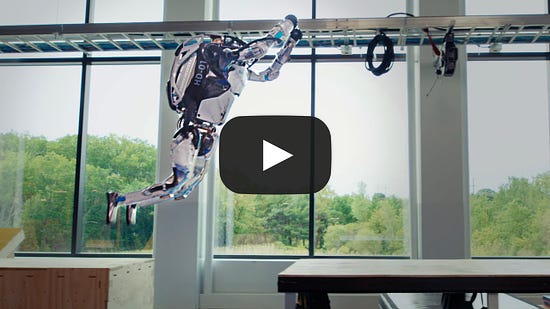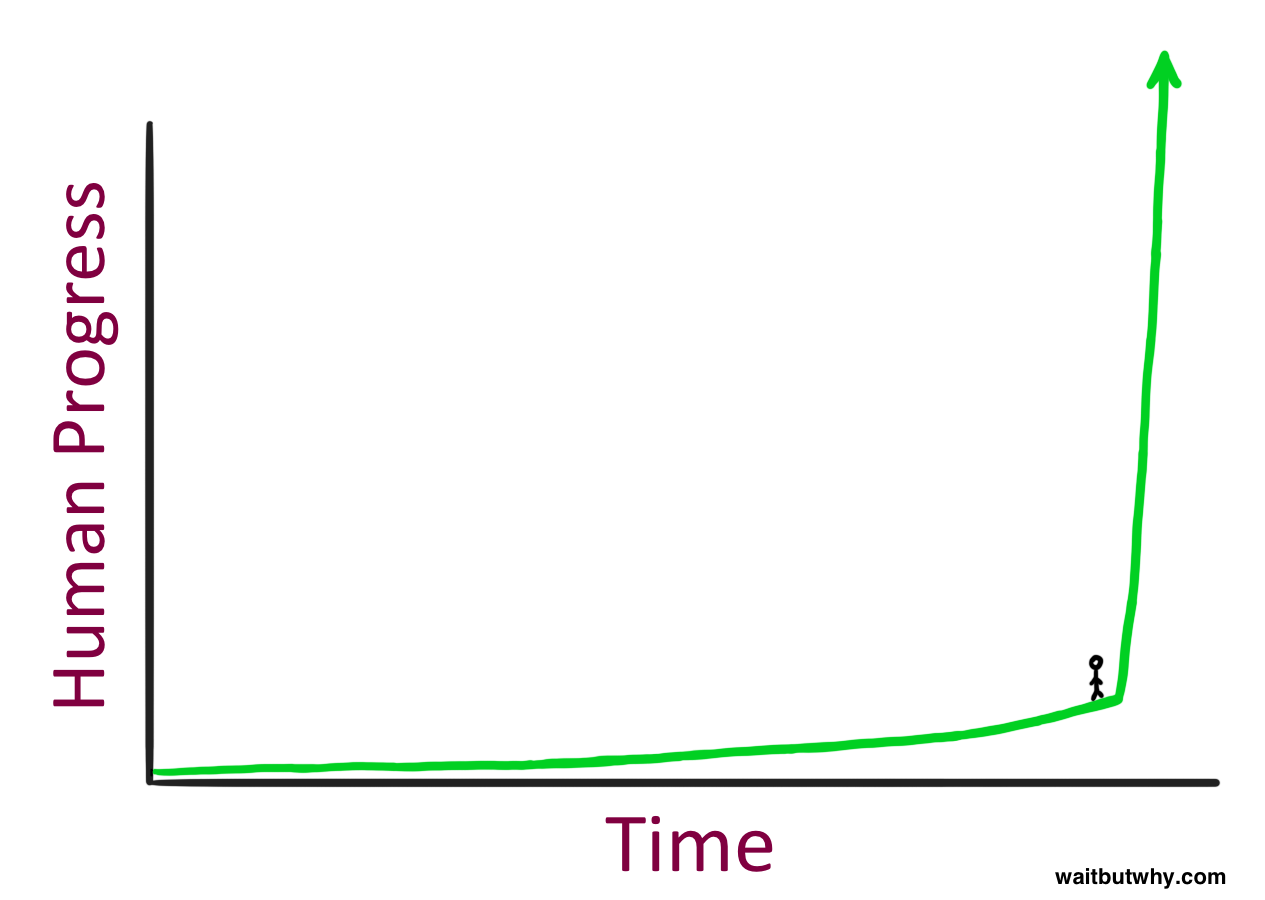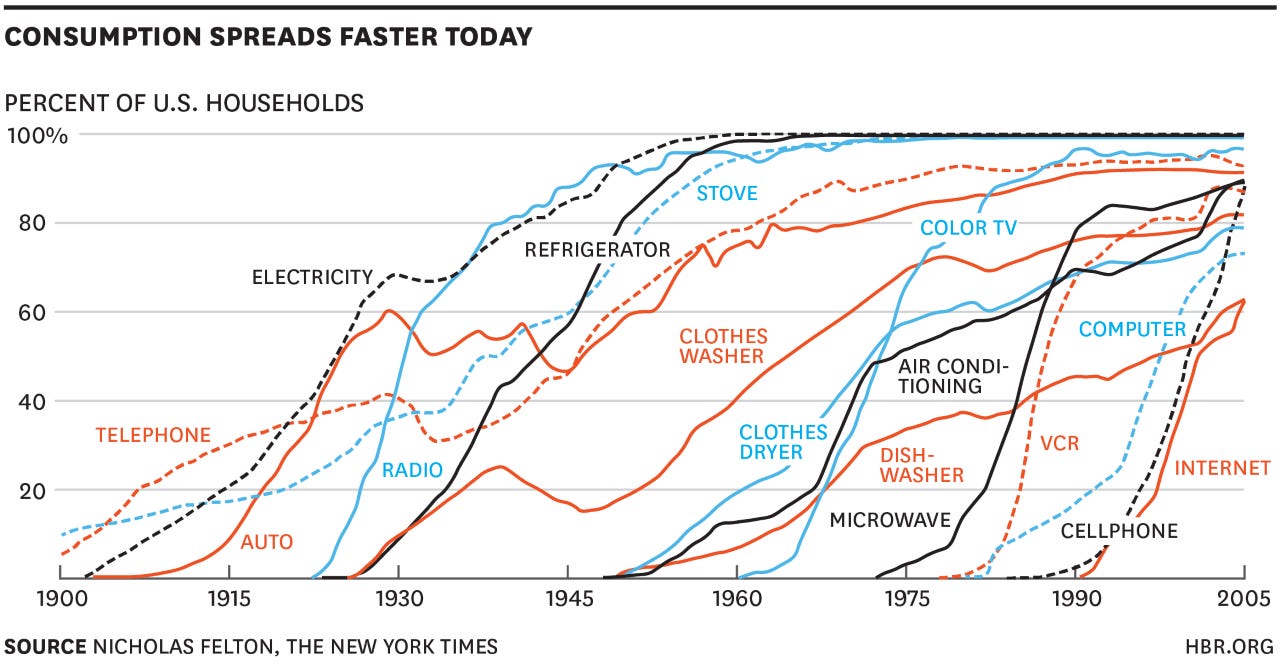Silicon Valley Outsider - New technology has always been scary
New technology has always been scaryWhat elevators and electricity can teach us about OpenAI and killer robots
A recent study found that the average American is more afraid of robots than death. And it’s not hard to see why — did you see that those Boston Dynamics humanoids are doing parkour now?  Mind control, designer babies, and covert listening devices are no longer things of science fiction. They are integrating ever-deeper into our lives as the years pass, and the pace of change is accelerating. It’s enough to strike fear into the hearts of even the most tech-savvy among us — perhaps especially the tech-savvy among us. Take OpenAI: founded by Elon Musk and Sam Altman in 2015, the company’s stated goal is to “ensure that artificial general intelligence (AGI)… benefits all of humanity.” A noble, comforting mission, but one that conveniently glosses over the abject horror that their founders feel towards the very technology they’re developing. The fear, of course, is that a sufficiently smart computer could decide to wipe humans off the map just as humans casually exterminate household pests — Musk called the development of advanced AI “summoning the demon,” and said that AGI represents a “fundamental risk to the existence of human civilization.” And so, while we laugh at OpenAI’s whimsical AI demonstrations… …the company internally believes that they, the good guys, have to build AGI before the bad guys do, or else the world might literally end. In a world with too-intelligent AI, killer robots, brain-to-computer interfaces, and gene editing, you can be forgiven for being a little bit afraid of modern technology.It certainly feels like we’re standing at the knee of the exponential curve: the road behind us flat, the road before us vertical. But we shouldn’t forget a truism of exponential growth: it always looks the same, relatively. A doubling from 0.5 to 1.0 is the exact same shape as a doubling from 5,000 to 10,000. New technology has always been scary, and humanity has always been a little bit alarmist.People worried that subways violated the will of God by getting people closer to hell, and that telephones would let people communicate with the dead. Early elevators were plagued by consumers who felt “elevator sickness” after their rides. And with the advent of the passenger train, people worried that “the unprecedented speeds of railroad travel could send women’s uteruses hurling from their bodies.” Technology changes, but people stay the same. In this piece, we’ll talk through three of the most earth-shattering, terror-inducing inventions of the late 19th century: electricity, elevators, and automobiles. All three were feared, boycotted, protested, regulated… and, ultimately, adopted. Scary technologies can still succeed, but the initial, terrifying hurdle can only be cleared if entrepreneurs and inventors know how to build trust among the general public. If you click here to keep reading, I’ll help you understand how scary technologies become less scary over time, and how entrepreneurs can hasten that transition.No, seriously, go check it out. The elevator section is the most interesting — no lie! Thanks for reading Silicon Valley Outsider! If you want to join 500 folks in getting an email from me each Monday, I’ll help you understand Silicon Valley using normal-human words. If you liked this post from Silicon Valley Outsider, why not share it? |
Older messages
Sneak preview: "New technology is always scary"
Tuesday, September 14, 2021
An upcoming mega-post about how consumers learn to trust innovators
Back to school, Silicon Valley-style!
Tuesday, September 7, 2021
What to do if you're a student interested in startups
The Seedling of the Operator Skill Tree
Monday, August 9, 2021
A work in progress... but at least there's a little progress!
Three startups that are changing the professional world for the better
Monday, August 2, 2021
Featuring HIVE, 81cents, and Empowerly
An Outsider's Search For Meaning
Monday, July 26, 2021
The choices that led me to the startup world
You Might Also Like
BSSA #116 - Outsourcing to scale 🚀
Tuesday, March 4, 2025
March 04, 2025 | Read Online Hello everyone! The Wide Event is almost sold out. More than 90% of the tickets have been booked. If you're one of the people waiting until the last minute to purchase,
🔥 The secret factories big brands don’t want you to know 👗👖
Tuesday, March 4, 2025
The best fashion suppliers don't advertise—here's how to find them. Hey Friend , If you've ever struggled to find high-quality fashion manufacturers, there's a reason: The best
Making Wayves
Tuesday, March 4, 2025
+ Girls just wanna have funding; e-bike turf war View in browser Powered by ViennaUP Author-Martin by Martin Coulter Good morning there, Since 2021, VC firm Future Planet Capital (FPC) has secured more
Animal Shine And Doctor Stein 🐇
Monday, March 3, 2025
And another non-unique app͏ ͏ ͏ ͏ ͏ ͏ ͏ ͏ ͏ ͏ ͏ ͏ ͏ ͏ ͏ ͏ ͏ ͏ ͏ ͏ ͏ ͏ ͏ ͏ ͏ ͏ ͏ ͏ ͏ ͏ ͏ ͏ ͏ ͏ ͏ ͏ ͏ ͏ ͏ ͏ ͏ ͏ ͏ ͏ ͏ ͏ ͏ ͏ ͏ ͏ ͏ ͏ ͏ ͏ ͏ ͏ ͏ ͏
upcoming analyst-led events
Monday, March 3, 2025
the future of the customer journey, tech M&A predictions, and the industrial AI arms race. CB-Insights-Logo-light copy Upcoming analyst-led webinars Highlights: The future of the customer journey,
last call...
Monday, March 3, 2025
are you ready? ͏ ͏ ͏ ͏ ͏ ͏ ͏ ͏ ͏ ͏ ͏ ͏ ͏ ͏ ͏ ͏ ͏ ͏ ͏ ͏ ͏ ͏ ͏ ͏ ͏ ͏ ͏ ͏ ͏ ͏ ͏ ͏ ͏ ͏ ͏ ͏ ͏ ͏ ͏ ͏ ͏ ͏ ͏ ͏ ͏ ͏ ͏ ͏ ͏ ͏ ͏ ͏ ͏ ͏ ͏ ͏ ͏ ͏ ͏ ͏ ͏ ͏ ͏ ͏ ͏ ͏ ͏ ͏ ͏ ͏ ͏ ͏ ͏ ͏ ͏ ͏ ͏ ͏ ͏ ͏ ͏ ͏ ͏ ͏ ͏ ͏ ͏ ͏ ͏ ͏ ͏ ͏ ͏
🦄 Dimmable window technology
Monday, March 3, 2025
Miru is creating windows that uniformly tint—usable in cars, homes, and more.
Lopsided AI Revenues
Monday, March 3, 2025
Tomasz Tunguz Venture Capitalist If you were forwarded this newsletter, and you'd like to receive it in the future, subscribe here. Lopsided AI Revenues Which is the best business in AI at the
📂 NEW: 140 SaaS Marketing Ideas eBook 📕
Monday, March 3, 2025
Most SaaS marketing follows the same playbook. The same channels. The same tactics. The same results. But the biggest wins? They come from smart risks, creative experiments, and ideas you
17 Silicon Valley Startups Raised $633Million - Week of March 3, 2025
Monday, March 3, 2025
🌴 Upfront Summit 2025 Recap 💰 Why Is Warren Buffett Hoarding $300B in Cash 💰 US Crypto Strategic Reserve ⚡ Blackstone / QTS AI Power Strains 🇨🇳 Wan 2.1 - Sora of China ͏ ͏ ͏ ͏ ͏ ͏ ͏ ͏ ͏ ͏ ͏ ͏ ͏ ͏ ͏ ͏ ͏




